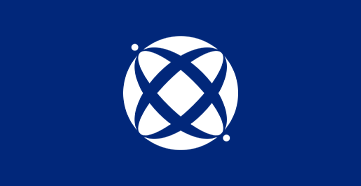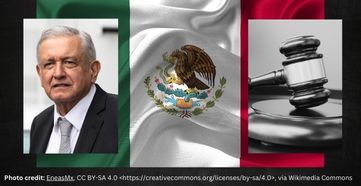|
|

Sep 27, 2023
The rise in popularity of generative artificial intelligence (‘generative AI’) has ignited the discussion on whether junior employees can be replaced by it. Some have gone to the extent of questioning whether professionals, such as lawyers, can also be replaced by generative AI. Is it wise to replace junior employees or lawyers with generative AI? What factors should be considered before deploying generative AI tools in your business? To consider these questions, we first need to understand the basic workings of generative AI and what it can offer. Fundamentally, AI is intelligence that is not biological. The general understanding is that machines will be ascribed with this intelligence. These machines have the ability to interpret, learn from and process external data in a way that is similar to the capabilities of the human mind. Generative AI is a type of AI program that generates content from a data set. It uses deep learning, a type of machine learning system that behaves like a neural network to simulate the functions of a human brain. In other words, it can mimic human intelligence by exhibiting analytical skills to create new content. Not only can generative AI be utilised in chatbot programs to create text, but it can also be used in programs that can create images, sound or videos. This article will consider two major forms of generative AI, in the context of risks to businesses: chatbots using generative pre-trained transformer technology programs; and image generating programs.
Feb 17, 2023
This article will outline the development of China’s restrictions on the cross-border transfer of personal information (PI export), detailing PI export mechanisms provided by the Personal Information Protection Law. It will also explain the practical implications of the restrictions.
Apr 22, 2022
This article discusses the recent SEC case involving PwC and highlights the wider implications for intermediary institutions providing professional services in a tightened regulatory and enforcement regime in China’s banking and financial sector.
Jun 12, 2024
The new Foreign State Immunity Law 2023 of the People’s Republic of China came into force on 1 January 2024. This shifts the country (as well as its special administrative regions, Hong Kong and Macau) away from absolute state immunity to restrictive state immunity, bringing it more in line with the relatively prevalent practice among the international community. This article discusses the status of state immunity in public international law, analyses the new law’s provisions and examines practical challenges that will be faced by those seeking to utilise this law to enforce judgments or awards against foreign states and state entities, and the new law’s innovations that go beyond the United Nations Convention on Jurisdictional Immunities of States and Their Property of 2004 and the UK State Immunity Act 1978.

Jul 08, 2025
Mediation is on the rise internationally as a means to settle disputes in a cost-effective manner. Chinese parties appear to be increasingly interested in mediation as an option. This article examines the evolving landscape of mediation in China and internationally. It considers how mediation for Chinese parties is evolving and whether mediation is a good option for Chinese parties in cross-border disputes. Commercial mediation has seen remarkable growth, bolstered by a supportive PRC judicial system and legislative initiatives encouraging parties to find harmonious ways to resolve disputes. The article analyses the three primary types of mediation in China: people’s mediation, administrative mediation, and commercial mediation. It also looks at mediation rules and proceedings in common law jurisdictions, such as Hong Kong, Singapore, and the United States. The article anecdotally considers the cultural elements, emphasising the Chinese parties’ preference for evaluative mediation styles as a reflection of civil law. Through case studies of international disputes involving Chinese and US parties, the article illustrates the practical dynamics of mediation involving Chinese parties and underscores the importance of cultural sensitivity in international mediation. As Chinese parties continue to go global, mediation is emerging as an attractive option for efficient and cost-effective dispute resolution. This analysis assesses whether the promotion of mediation is yielding tangible outcomes and explores the future of mediation involving Chinese and foreign parties.
The crisis caused by the Covid-19 pandemic has renewed interest in the need for legal and contractual mechanisms that promote the adjustment of contracts in the event of unforeseeable and abnormal circumstances.
The purpose of this article is to provide an overview of the main aspects that served as a starting point for the ‘Municipal Tax Harmonisation Agreement’ in Venezuela, presented by the Vice President of the Economic Area with governors and mayors, in compliance with the mandate given to them by the Constitutional Chamber of the Supreme Court of Justice in judgment No 0078 dated 7 July 2020.
The article explores how far South Africa has come in providing protection for LGBTQIA+ individuals. South Africa has made noteworthy progressions in LGBTQIA+ rights since 1996. From prohibiting discrimination on the basis of sexual orientation in the Constitution of the Republic of South Africa, to the numerous cases in which courts have taken steps to provide protection to same-sex life partners, and the birth of the Civil Union Act, which provides for same-sex partners to get married.
Jan 21, 2022
In rapid succession, a number of jurisdictions have moved away from focusing on antitrust enforcement to the proposed regulation of digital platforms. Ostensibly, the regulatory focus is about competition and potential concerns that traditional ex post enforcement may be ill-equipped to address the power of digital platforms. This article focuses on the realities of what platform regulation might mean, and how to better frame and structure the nature of appropriate regulation. This article first identifies a number of the different approaches to regulation that various jurisdictions have put forward, and then lays out six basic principles for platform regulation to help address some of the potential harms that such approaches may unwittingly be pursuing.
Dec 02, 2021
With the rapid growth of sustainable products and investments, the pressure for genuine corporate sustainability has intensified. Increasing investor scrutiny and accelerating climate breakdown and biodiversity loss, for example, play a part in this. In-House Perspective explores whether increased awareness owes as much, however, to reactions to the rising tide of ‘greenwash’ – when corporations make misleading claims about their green credentials.
This article examines the Future Energy Scenarios set out in the National Grid ESO’s recent report, with a particular focus on the role of digitalisation and open data in achieving net zero in the UK by 2050.
Government Decree RD-Law 463/2020, dated 14 March 2020, declared a State of Emergency to deal with the Covid-19 health crisis. It adopted a series of measures relating to limiting peoples’ movements, as well as constraining Spain’s social and economic activities.
In spring 2018, the International Bar Association's Human Rights Institute (IBAHRI) and the Anti-Torture Initiative (ATI) reached the milestone of conducting tailored programmes in all five regions of Brazil on torture prevention and implementing the Istanbul Protocol. The IBAHRI has worked in Brazil since 2010 to support the country in its commitment to eradicate torture as part of its obligations under international law
May 08, 2024
In the second part of this feature, Global Insight assesses the legal issues associated with clean energy as countries pivot to renewables in response to the climate crisis.
In the second part of this feature, Global Insight assesses the legal issues associated with clean energy as countries pivot to renewables in response to the climate crisis.
Apr 23, 2025
The IBA expresses its deepest condolences on the passing of His Holiness the Pope. His unwavering commitment to justice and the dignity of all people resonated far beyond religious boundaries and inspired those in the legal profession across the globe.
In this podcast, Nico Ooyevaar, Vice-Chair, IBA International Trade and Customs Law Committee, and partner at McMan & Co, discusses the Vision Research Europe vs Dutch Customs case with Yves Melin, Publications Officer, IBA International Trade and Customs Law Committee, and partner at Reed Smith.
In this podcast, Alvaro Castellanos Howell, Co-Chair of the IBA Poverty and Social Development Committee, talks to Hugo Beteta, Director of the Economic Commission for Latin America and the Caribbean (ECLAC). Mr Beteta discusses the impact of the Covid-19 pandemic on Latin American and Caribbean countries, the difference between poverty and inequality, and the recommendations made by ECLAC on the eradication of poverty.
In this LPRU podcast, Professor John Ruggie, the author of the UNGPs speaks to Sara Carnegie, Director of the LPRU and Maria Pia Sacco, Senior Project Lawyer, to discuss the impact of the UNGPs and future developments in the area of business and sustainability.
News release, Tuesday 12 November 2018. The International Bar Association’s Human Rights Institute (IBAHRI) has released a video on torture prevention in Brazil in which local stakeholders and international experts provide opinion about the historical background of torture in the country, and the current challenges for its prevention and prosecution. The video also illustrates how the work of the IBAHRI is contributing to strengthening Brazil’s capacity to uphold its national and international commitment
Dec 09, 2022
Increased economic volatility, healthcare emergencies and the rise of digital markets have all challenged the enforcement tools and approach of competition authorities globally. Successive economic shocks have required greater speed in responding and finding solutions to protect consumers. The Competition Commission of South Africa (CCSA) has used the active monitoring of critical markets, firm-level advocacy, guidance on the boundaries of acceptable conduct, accelerated investigations and consent agreements to correct behaviour rather than litigation. Examples are provided in price gouging, food markets, polymerase chain reaction (PCR) testing and airline exits. Speed is also considered important in digital markets, and given the ecosystems that characterise many digital markets, market inquiries are increasingly seen as a more effective tool to address features that adversely affect competition, along with tackling value chains in traditional markets.
Jun 16, 2021
Ten years after the unanimous endorsement by the United Nations Human Rights Council of the UN Guiding Principles on Business and Human Rights (UNGPs), their author Professor John Ruggie (pictured) discusses the ever-changing landscape of human rights due diligence with the International Bar Association (IBA) Legal Policy & Research Unit (LPRU).
May 11, 2020
Letter to the President of Kazakhstan from IBAHRI
Aug 09, 2022
The International Bar Association’s Human Rights Institute (IBAHRI) commends the Central African Republic (CAR) and President Faustin-Archange Touadéra (pictured) for passing Law 22.011, formally eradicating the death penalty in the country following a de facto moratorium since 1981.
Apr 21, 2023
The IBAHRI condemns the conviction and 25-year prison sentence handed down to Russian journalist and opposition activist Vladimir Kara-Murza by the Moscow City Court on 17 April 2023.
Jun 22, 2021
The South African Competition Act 1998 has from the outset reflected a clear focus on both competition law and public interest issues, the latter including provisions to enhance small business and overcome historical discrimination wrought by apartheid. Interpretation and implementation of these provisions has developed over time, culminating in the introduction of amendments to these provisions in the Competition Amendment Act 2018, which came into force in 2019. This article reviews the applicable legislative provisions and how they have been interpreted by the competition authorities in practice and through case law, and considers whether they have been effective.
May 16, 2023
The International Bar Association (IBA) expresses concern over Mexican President Andrés Manuel López Obrador’s interference with judicial independence, following egregious and repeated remarks undermining the integrity of the country's Supreme Court, most recently during a press conference on 19 April 2023.
Aug 10, 2023
The International Bar Association’s Human Rights Institute (IBAHRI) is highly concerned about the recent news that lawyers belonging to the Ahmadiyya community in Pakistan – a numeric minority community in the country – are being required to renounce their religion as a prerequisite to practice law.
|
























